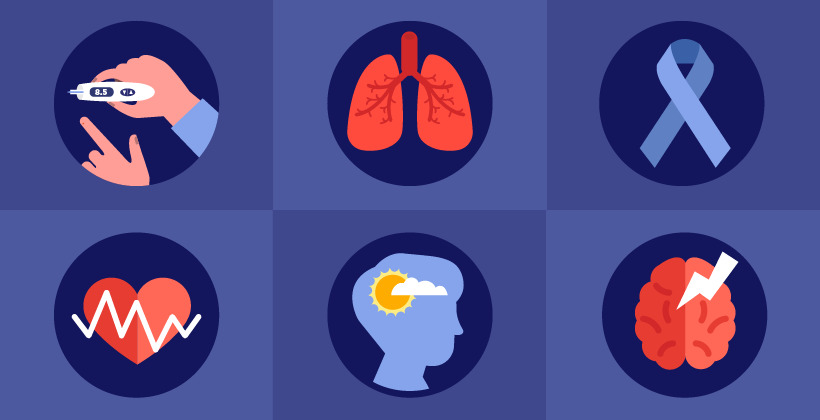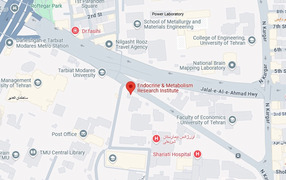
Non-Communicable Diseases Research Center
- 1403/10/15 The 5th Convergence Congress on Endocrine Sciences: Innovations in Disease Diagnosis and Treatment
- 1403/10/15 Burden of type 2 diabetes mellitus and its risk factors in North Africa and the Middle East 1990 2019 findings from the Global Burden of Disease study 2019
- 1403/10/12 A Comprehensive Student Health Study at Tehran University of Medical Sciences: Lifestyle Changes and Their Impact on Health and Academic Performance
- 1403/10/12 A decision rule algorithm for the detection of patients with hypertension using claims data
- 1403/10/12 Global regional and national burden and quality of care index (QCI) of oral disorders a systematic analysis of the global burden of disease study 1990-2017
- 1403/10/12 Non-communicable diseases risk factors in Iran a review of the present status and action plans
- 1403/10/11 WHO Recognizes Endocrinology and Metabolism Institute as Collaborating Centre
Introduction and History
The Non-Communicable Diseases Research Center (NCDRC) of the Endocrinology and Metabolism Research Institute (EMRI), Tehran University of Medical Sciences, was established in 2012, following the resolution passed during the 220th session of the Council for the Expansion of Medical Universities. The center was founded with the aim of generating and consolidating evidence essential for effective and equitable policymaking in health at both national and international levels.
The rapid and continuous shifts in demographic composition and disease distribution have posed significant challenges to health systems worldwide, as well as to national and international research institutions. Health systems, tasked with improving both the average health level and its equitable distribution, must exhibit key characteristics such as:
- Prompt responsiveness to technical and non-technical needs
- Reduction of out-of-pocket health expenses
- A focused emphasis on equitable access to healthcare services
- Ensuring quality healthcare delivery
- Demonstrating technical and operational efficiency
Moreover, leveraging cost-effective and impactful interventions ensures equitable access to quality healthcare for all members of society.
To address these challenges, the NCDRC was established with the following objectives:
- Health Assessment: Evaluating population health indicators.
- Health System Performance Evaluation: Monitoring and improving the effectiveness of healthcare systems.
- Maximizing Intervention Impact: Enhancing the outcomes of interventions among local and regional populations.
A core focus of the NCDRC is the study of heterogeneity—not only at the individual level but also across populations. Such studies provide robust evidence to support population-level interventions, directly applicable for policymaking.

To achieve its goals, the center employs cutting-edge technologies and fully digital processes in information technology, biotechnology, and nanobiotechnology. It collaborates with specialized experts and faculty members across diverse fields, including pharmacology, epidemiology, statistics, and more. Currently, over 50 faculty members from various countries contribute to the center's activities. Additionally, more than 10 Ph.D. and master’s students graduate annually after completing their research projects at the center.
Thirteen years after its inception, the NCDRC has consistently maintained its position as a leading research institution in clinical studies. It has achieved the top rank in the Razi Medical Sciences Research Festival as the top national Medical Sciences Research Festival for five consecutive years, reflecting its dedication to excellence in research and innovation.


